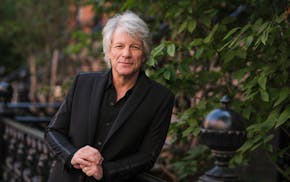If the adage "You are what you eat" is apt for all of us, it is doubly apt for memoirist and food writer Nina Mukerjee Furstenau. Food, you see, fuels not only her body on a daily basis, but also defines how she navigates her dual identity as a resident of the American Midwest and, in spirit, of the Northern India Bengali state.
Born in 1962 to Indian parents who resided in Thailand, Furstenau arrived in the United States as an infant. Her father, an engineer, and her mother, the primary caregiver of two young children and later a schoolteacher, adored their homeland but wanted better opportunities for the next generation. Furstenau's father found employment in Chicago with the corporation that had employed him back home. But Chicago was too cold, literally and figuratively, so the next year they resettled in Pittsburg, Kan. Eventually, as an adult, Furstenau (married to a decidedly Caucasian Midwestern farmer) settled in Howard County, Mo. She and her husband, Terry, followed their idealism to Tunisia as Peace Corps workers for a couple of years, but mostly Nina came to grips with her Indian heritage through foods foreign to Kansas and Missouri.
"Biting Through the Skin" (University of Iowa Press, 168 pages, $19) is a sensitive, beautifully written memoir with food always at the center, and with Indian recipes mentioned in the text and at the end of each chapter. Outside the family home, in public, the Mukerjee family labored mightily to blend in with the natives of Pittsburg, eating hamburgers and slurping ice cream. Only behind the closed doors of the family home did Nina's mother and later Nina herself cook Indian dishes generations old in the Bengal state.
To some extent, the memoir is chronological. But Furstenau at times veers off to talk about the importance of language education; the custom of arranged marriages; the roles of formalized religion and less formalized spirituality in her Indian and American surroundings; the otherworldliness mixed with a mystical familiarity on journeys back to India with her parents, the sensations involved when her Indian grandparents show up in rural Kansas for a visit.
Always, though, the narrative returns to food. Furstenau found the balance between cultures not in language or religion or dress. Instead, "it came through food: potatoes coated with crushed poppy seeds, rich carp curry, fiery mustard gravy offsetting the delicate aroma of freshwater fish, sweet mango chutney to cleanse the palate before a last course. It rises to me in aroma, in a world of recipes, in a pocket of culture that fits exactly right."
Steve Weinberg resides in Columbia, Mo., one county over from Nina Mukerjee Furstenau. He is a member of the National Book Critics Circle and the author of eight books of nonfiction.
Olympian Kristi Yamaguchi is 'tickled pink' to inspire a Barbie doll

After 4 decades in music and major vocal surgery, Jon Bon Jovi is optimistic and still rocking
Rom-com author Emily Henry knows the secret to having a healthy relationship with love

